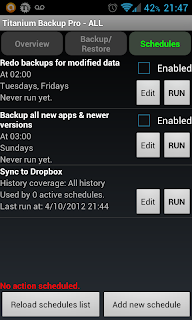Lately I’ve been using Google+ more and more, and more, and unlike the times where Facebook was apart of my routine, things focus more on G+. In fact, I use G+ enough that I’m considering turning off commenting here and modifying things to direct people to Google+.
That leads me to also thinking about what directions I want to go in. For the short term, nothing will change, except people should probably look at my G+ more than here, perhaps.
Three possibilities for the future years:
- Migration to G+
- Retention of Blogger
- Migration to a custom solution hosted at Cyb3Web.
The Google Plus solution has some merits. It really is convenient for me, and it integrates well with my data flow. Because it meshes with other data, in my stream. It’s so neat. That’s one of the good things about Facebook too, even if their filtering stuff took to damn long. The primary concerns I have with the G+ solution is data access and navigation. It can be hard enough to find things again that I have posted on Blogger or Live Journal, because at best I need to do a site: search in Google or know approximately what time period I posted it in. Tagging has proven some use in narrowing the results down but is only as good as ones tagging discipline and yields to many results!
Pro’s for a switch to G+:
- Convenience.
- Even better and growing integration with Google services.
- Much better privacy controls.
- Search Plus Your World may make it easier to find things again.
Con’s for a switch to G+:
Those who would just say use Facebook, will have their heads beaten in. Yes, I mean it. Fuck you. Just like you may choose Facebook as a hub, I choose Google Plus.
Unlike Twitter but like Blogger, G+ handles larger, “Blog” style posts pretty well. I like it. Some gripes like the limited control over formatting but I can probably live with that, heck it already has more formatting than I strictly need.
Getting data out of Google Plus is not bad. Seems to offer HTML or JSON. I’ve just downloaded my Stream content in JSON format. Something that would be very good for data munging. I cannot exactly say that Facebook can win at control over my data here, and their track record not so good at the completeness part IMHO.
The Blogger solution is what I already am doing really. The only thing I have to complain about with Blogger, is API side effects. Blogger integrates into exterior services better than G+, and more importantly does so better than Blogger integrates into G+! I have to manually share things to Google Plus, where as the process of sending it to RSS, Twitter, and Facebook, is fairly good. Except that getting people to respond HERE instead of e.g. on Facebook, took some stern wall posts, on top of the whole signature saying so… lol
It is much easier to build up infrastructure around Blogger than G+ right now, even for custom shit. The problemo is integrating anything with G+ is a bitch at the automata level. Thanks to whoever wanted to protect us for all those shitty Facebook apps I guess. Don’t remember who posted it.
Some possibilities exist with custom client-side code perhaps but that is what I really am missng I guess. I love Blogger but it doesn’t mate with G+ good enough for me, nor does G+ really mesh with anything outside it yet.
Pro’s of Blogger:
Con’s of Blogger:
-
Sharing to G+ is manual.
- Can’t make “Comments” system just link to a G+ entry.
- Have to change web pages to view other content that belongs in m y stream.
Notice that non of those cons are really Blogger’s fault! Google+ seriously needs better integration services, ffs!!!!
The custom solution has it’s merits. I’ve got the web setup and programming skills to cook up something, and I frequently do hack out tools to scratch itches. But I also know canned solutions have great value. Going custom, I get full control: over data, tools, etc. And I have a great web host :-). Doing some custom code isn’t a big issue here, so much as ROI of going Blogger -> Custom instead of Blogger -> G+.
Most of things contra for keeping Blogger, extent to rolling a custom solution. The only difference is the amount of control: if it’s humanly possible to achieve, I can. With Blogger, I have to rely on Google engineers and super system admins.
The real pro’s are also similar, but larger. Namely I can leverage the extra power to do things like automatically copy post data to an offsite data store: like Dropbox or BOX, on top of having backups with my web host.
Another possibility is that since there is an API for reading data out of G+, my “Custom” solution could really just be a way to pretty print my G+ content, and link back to allow commenting/resharing services. What I am not so sure of, is the affordability of that on my wallet. Maybe it’s a good thing that my site doesn’t get hundreds of thousands of views a month.
What I am going to do is experiment with the following issues with G+:
-
Finding things again.
- result: beats Blogger to shit.
- API access to G+.
- Experiments with scripting G+.
Oh, and while I can see people might have issues about e.g. control over visual matters being a big blurb for something like what I am contemplating, it is not for me. I usually find Google has reasonable taste and I prefer content over wizbang themes.
